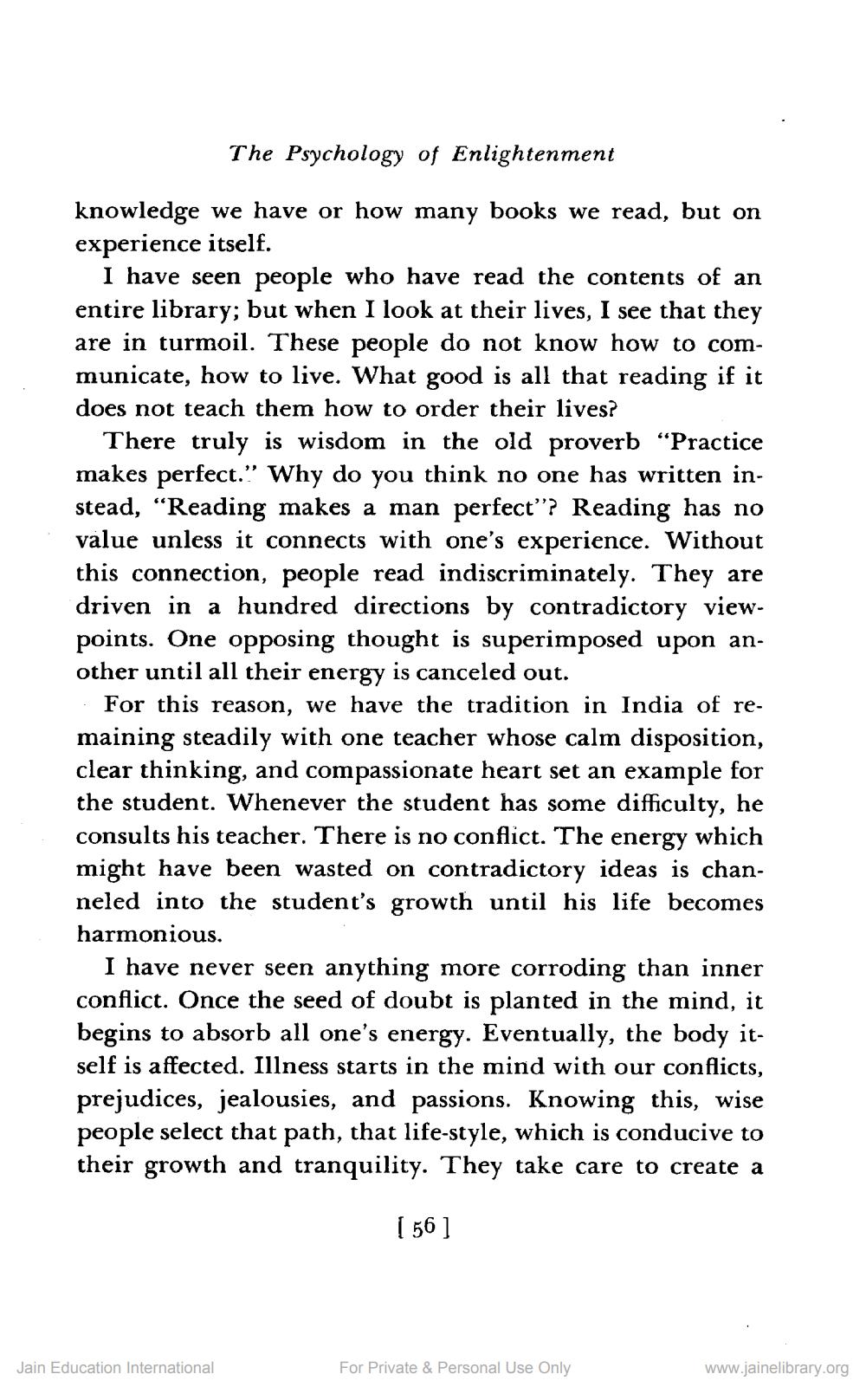________________
The Psychology of Enlightenment
knowledge we have or how many books we read, but on experience itself.
I have seen people who have read the contents of an entire library; but when I look at their lives, I see that they are in turmoil. These people do not know how to communicate, how to live. What good is all that reading if it does not teach them how to order their lives?
There truly is wisdom in the old proverb “Practice makes perfect." Why do you think no one has written instead, “Reading makes a man perfect”? Reading has no value unless it connects with one's experience. Without this connection, people read indiscriminately. They are driven in a hundred directions by contradictory viewpoints. One opposing thought is superimposed upon another until all their energy is canceled out.
For this reason, we have the tradition in India of remaining steadily with one teacher whose calm disposition, clear thinking, and compassionate heart set an example for the student. Whenever the student has some difficulty, he consults his teacher. There is no conflict. The energy which might have been wasted on contradictory ideas is channeled into the student's growth until his life becomes harmonious.
I have never seen anything more corroding than inner conflict. Once the seed of doubt is planted in the mind, it begins to absorb all one's energy. Eventually, the body itself is affected. Illness starts in the mind with our conflicts, prejudices, jealousies, and passions. Knowing this, wise people select that path, that life-style, which is conducive to their growth and tranquility. They take care to create a
( 56 ]
Jain Education International
For Private & Personal Use Only
www.jainelibrary.org




